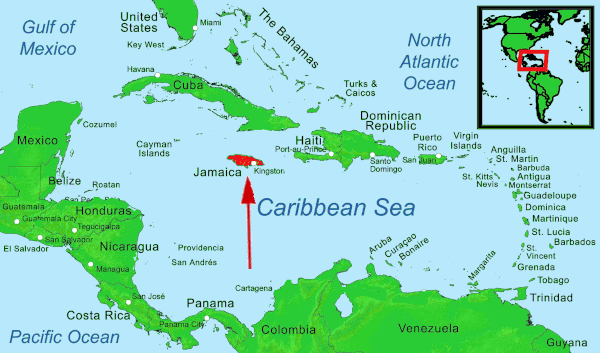
Circle the area on this map

C. Portuguese ships carried nearly 6 million Africans to the Americas, with another 748,000 dying during the voyages. In 1526, the Portuguese completed the first transatlantic slave voyage to Brazil, and other Europeans soon followed. Britain was the second-largest slave trader, transporting nearly 3 million Africans, with more than a half million killed during the voyages.
C. Portuguese Brazil was the destination for nearly 5 million enslaved Africans, while the Caribbean Basin was the second-largest market for slaves. Some Jamaicans said Prince William’s “profound sorrow” was not enough. They want reparations for the slave trade, which brought great wealth to Europe and greatly enriched William’s royal ancestors and other monarchs.
A. Belize, Jamaica and the Bahamas are constitutional democracies with Britain’s Queen Elizabeth II as their head of state. During Prince William and Kate’s visit, Jamaica’s prime minister said his nation was “moving on” and “in short order” it intended to “fulfill our true ambition” of becoming an “independent, developed and prosperous country.”
A. Barbados gained independence in 1966 but kept Queen Elizabeth II as its head of state until last November, when she was replaced by an elected president. Dominica, Guyana and Trinidad and Tobago all dropped the British monarchy in the 20th century. With Barbados, they remain members of the Commonwealth, an association of 59 nations that were once part of the British Empire